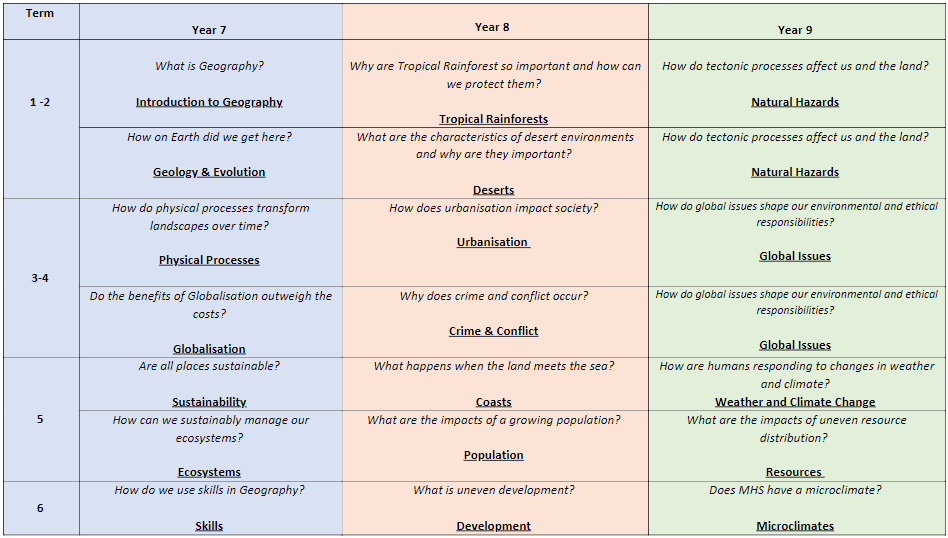Geography
There has never been a better or more important time to study Geography. With growing interest in issues such as climate change, migration, environmental degradation and social cohesion, Geography is one of the most relevant subjects you could choose to study. Geographers are also highly employable.
By studying Geography, you should have knowledge and understanding of:
- Why our human and physical environments and landscapes appear as they are, how they form and operate, and how they inter-relate at various scales
- How and why patterns of human and physical features differ from place to place across the earth
- Differences and inequality within the human world; especially the economic, social and political causes of inequality and economic development
- The importance of different spatial scales – global to local –and time scales for physical and human processes, together with their interactions and interdependence.
By studying Geography, you will gain valuable skills:
- Intellectual skills, such as critically evaluating theories and judging evidence in order to make informed decisions and to develop reasoned arguments
- Research skills, such as using a range of technical methods for the collection and analysis of spatial and environmental data, and undertaking fieldwork
- Transferable skills, such as teamwork, problem solving, IT skills, communication skills (presentation, writing, debating)
- Personal attributes, such as time-management, development of responsibility, coping with uncertainty, self-reflection, motivation, flexibility, and creativity
The Geography department at ذكذكتسئµ looks forward to introducing you to the many and varied aspects of our subject.
Resources
We use a large variety of resources such as web sites, video clips, maps, satellite photos, atlases, newspaper reports, DVDs and interactive whiteboards.
For GCSE we use textbooks written specifically for the course We also encourage the students to subscribe to ‘Wide World’ a geographical magazine written specifically for GCSE students.
Years 7 - 9
Years 10 - 11
At GCSE we study AQA syllabus. This course is a combination of physical and human geography and is summarised in the table below:
1. LIVING WITH THE PHYSICAL ENVIRONMENT
- Ecosystems: Tropical rainforests and Hot deserts
- Natural Hazards: Tectonic hazards, weather hazards, climate change
- UK Physical Landscapes: Coastal and river landscapes in the UK
2. CHALLENGES IN THE HUMAN ENVIRONMENT
- The Changing Economic World: Economic development
- The Development gap, economy of the UK
- Urban Issues and Challenges: Urban growth, urban change in UK
- Management of Resources: Food, water and energy and human development, demand and resources in UK
- Water
3. GEOGRAPHICAL APPLICATIONS
- Section A: Issue Evaluation
- Critical thinking and decision making element based on contemporary geographical issues
- Section B: Fieldwork
During the duration of the GCSE course the students will carry out two fieldtrips, one in year 10 and one in year 11.
Sixth Form
Please visit the V6 Sixth Form website for information about





